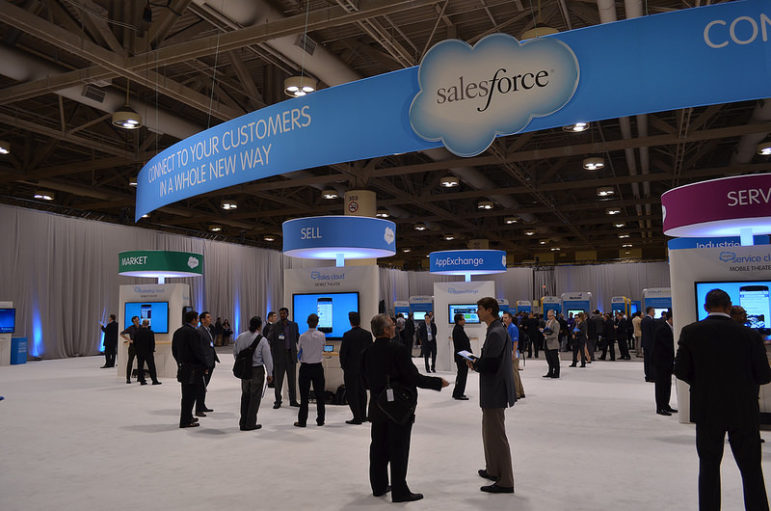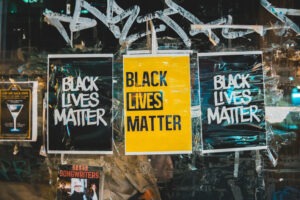
July 21, 2016; Forbes Blogs, “Ashoka”
Suzanne DiBianca, Executive Vice President of Corporate Relations and Chief Philanthropy Officer at Salesforce, recently sat down with Michael Zakaras of Ashoka to discuss Salesforce’s approach to corporate social responsibility (CSR) and philanthropy.
Salesforce is often held up as a strong example of next-generation CSR, a company truly integrating its values and philanthropy into its core business. But what implications does this level of integration have on a company’s role with respect to the politics and policy of specific social issues?
The Salesforce Foundation, created in 2000 by DiBianca and Salesforce CEO Marc Benioff, centers its work on the 1-1-1 model, giving away one percent of its equity, time, and product to the nonprofit organizations it supports. This model has been replicated at other companies looking to tie the level of their philanthropy directly to the business, demonstrated most directly through the Pledge 1% initiative.
Recently, Salesforce has taken its efforts to address social problems far beyond the reach of their 1-1-1 programming. Benioff has fought fiercely against states with policies that create barriers for LGBTQ individuals. While as an individual citizen Benioff has the right to take any political stand he’d like, his use of Salesforce as political capital in that fight has been called into question. Last year, for instance, Benioff cancelled all Salesforce activity in Indiana as a response to Indiana Governor (and now vice presidential candidate) Mike Pence signing the state’s Religious Freedom Restoration Act into law.
Sign up for our free newsletters
Subscribe to NPQ's newsletters to have our top stories delivered directly to your inbox.
By signing up, you agree to our privacy policy and terms of use, and to receive messages from NPQ and our partners.
Benioff has been clear that his actions are on behalf of his company and its employees—not himself. In a Time interview in March, Benioff addressed this directly, saying, “These are not my decisions. These are the decisions of my employees. I am advocating on their behalf. My job is to listen and to collaborate, to share, to align, and then to push it forward.”
DiBianca has a similar take.
We consider equality a core value, it’s that simple. And advancing it sometimes means being vocal to protect our employees and pushing back against discriminatory legislation. It’s all part of taking a broader stakeholder perspective and asking what’s right for them.
On this issue, Salesforce is clearly advocating on what Benioff would call “the right side of history.” Still, one of his core arguments has been that its bad business to discriminate against LBGTQ persons. And, while it’s hard not to admire Benioff and DiBianca’s advocacy for their employees and the LBGTQ community, it does raise the same questions that Citizens United and corporate lobbying do around how appropriate and fair it is for powerful companies to leverage their weight behind political issues.—Danielle Holly













